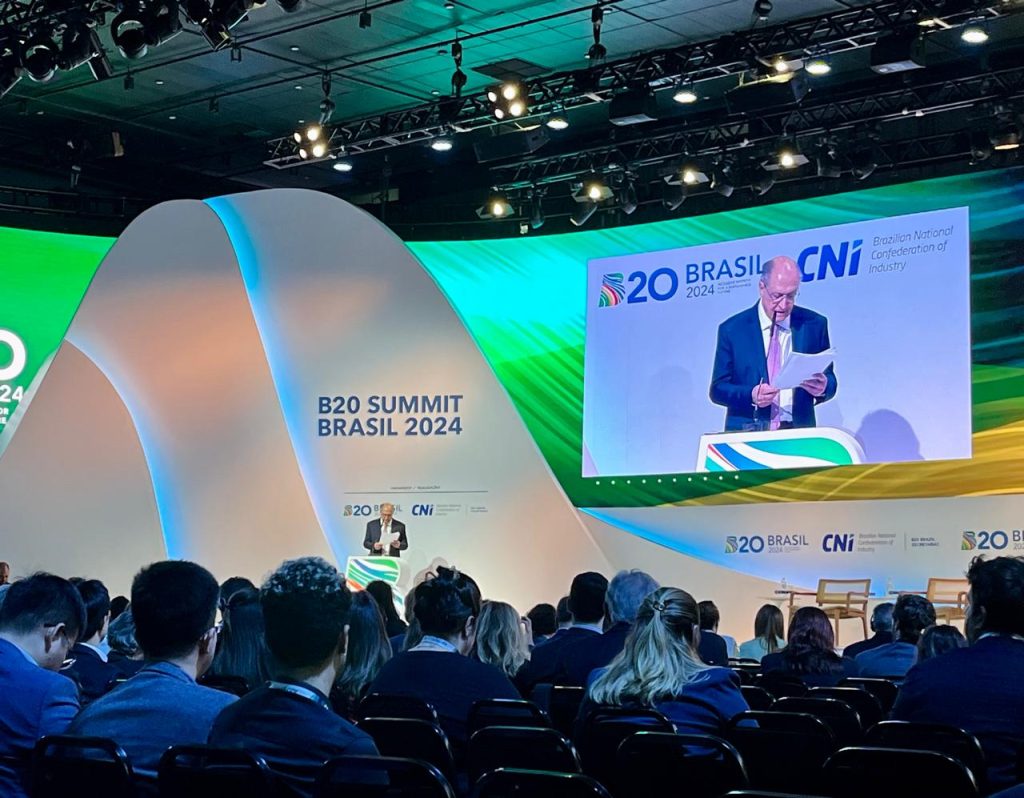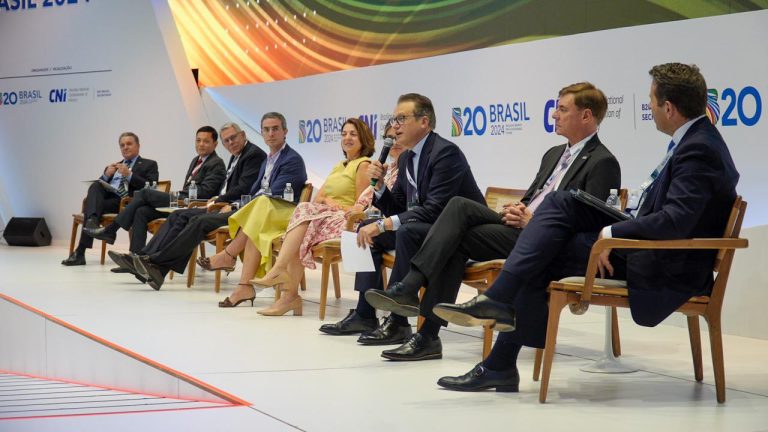São Paulo – Trade took center stage in discussions and speeches on the second day of the B20 Summit held on Friday (25) in São Paulo. During the Trade Ministers Session, the UAE Minister of Foreign Trade Thani Bin Ahmed Al Zeyoudi noted there are various blocs for trading goods and services, but part of the reduction in greenhouse gas emissions and development also depends on regional trade.
“The G20’s short-term actions will determine the long-term G20. It’s essential to align trade practices and foster integration for the B20 to remain relevant,” he said, noting that innovation relies on the creativity of the private sector.

After his presentation in this session, Brazil’’ Vice President and Minister of Development, Industry, Commerce and Services Geraldo Alckmin delivered a speech at the B20, emphasizing that global trade needs to be fairer and more inclusive, in line with what he and other ministers agreed upon this week during the final meeting of G20 trade ministers.
“Today we celebrate the relationship between government and the private sector,” he said, adding that companies are the “driver” of the global economy. “The recommendations that the B20 sends to the G20 reflect key topics of the global economy,” Alckmin said, noting that the G20 agrees with the topics presented as priorities by the B20, including the reform of global trade, the development of green infrastructure, innovation, and the promotion of gender equity. “All countries need the WTO, but some depend on it even more,” he said about the World Trade Organization.
Fair trade relations
In the first debate of the day, “Leveraging Trade to Promote Prosperity and Combat Hunger,” the president of the Brazilian Agency for Industrial Development (ABDI), Ricardo Capelli, advocated for a fairer and more balanced global trade, saying that “protectionism has been on the rise in the world.”
Executives from Brazilian companies who formed a private sector task force also called for instruments and improvements in the global trade system, presenting suggestions for the government leaders who will meet at the G20 in Rio de Janeiro on November 18 and 19.
In the panel “Crafting the Agenda: Recommendations for Changing Directions from the B20 to the G20,” the task force led by Embraer CEO Francisco Gomes Neto presented conclusions and suggestions for G20 economies to move toward a less unequal and more sustainable world. One of the conclusions, Gomes Neto said, was the recovery of the WTO, including the creation of a council for the organization that could arbitrate international trade.
From this task force, priorities such as investment in education, digital inclusion, and the inclusion of girls in education and career advancement opportunities emerged. “No one should be left behind,” said Paula Bellizia, vice president of Amazon Web Services for Latin America, emphasizing a theme that was mentioned several times during the meeting.
The challenges of global warming were highlighted by Ricardo Mussa, CEO of Raízen, who also joined the task force and pointed out Brazil as a country that can be a global leader in the energy transition. Starting in 2030, he said, the world needs to generate three times more energy from renewable sources. Biofuels can serve as a transitional source during this period, and global energy efficiency must increase to address these challenges.
The Arab-Brazilian Chamber of Commerce (ABCC) participates in the B20 Summit with its leaders and executives, supporting Arab participation in both the events of the Summit and on its sidelines.
Read more:
B20: Private sector pushes net zero goals
Translated by Guilherme Miranda




